I’m of an age where I now think twice before I say anything at all knowing that, however valid I think my comments are, there will be somebody who will see them as evidence of my belonging to a generation that has passed its use-by date.
Maybe its true!
This thought occurred to me just now when I found myself reacting negatively to a recent article in the Medical Journal of Australia which was using words that I had never encountered before and which appeared to me not to be proper English words at all. I’m used to medical and scientific neologisms but, I thought, when an article in a distinguished journal uses such non-words as “survivance” (surely they mean “survival”) and thrivance (shouldn’t that be “thriving”?) things have come to a pretty pass!
What a shock I got when I looked those words up!
Survivance and thrivance are real words
The word “survivance” is a term that has apparently been around for centuries. It fell out of use in the 18th century and was resurrected in the 1990s in the context of Native American Studies, especially in the work of Gerald Vizenor, a native American academic, ethnologist and writer. It actually means a whole lot more than survival. Some think it is just a portmanteau of “survival” and “endurance” but to others it means much more. It is the opposite of victimhood and refers to the ongoing “presence” of native stories and culture in society, not just through tokenism but as a living and legitimate part of the wider culture.
“Thrivance” of course means “flourishing”, especially in relation to first nations peoples, and its history as a word is obscure, but it seems to be simply a noun derived from the verb “to thrive”. How long it has been in use? That’s not clear but if you google it you will see it everywhere. It appears in the names of many and varied organisations and even a political and philosophical school of thought called “Thrivism”. It seems to include notions of moving beyond survival to self-determination and cultural continuity.
I’m warming to these words as I find out more about them.
As you can see. I’ve been down a wormhole and, while I would love to do so, I won’t bore you with the many other things I have learned – you might enjoy the same wormhole if I leave you curious.
Resolutions from the wormhole
What has happened to me in this wormhole is that I have made two strong resolutions.
The first is to stick with the policy of thinking before I speak. The world is moving forward and even knowledge of language is not fixed. Words that didn’t exist before can be born legitimately and grow to have special meanings. I need to be open to change and respectful of it.
The second resolution I’ve made, not for the first time, is to find out more about and try to understand other cultures, especially that of our indigenous people. How can we possibly expect to help people with anyone’s mental health or their social and emotional wellbeing if we don’t have a rich understanding of their background and situation? If we don’t try to achieve that we are simply running along on a thin crust of superficial assumptions, many of which are inherently biased by our stereotypic thinking, no matter how hard we try to think otherwise.
But how…?
The very best thing to do is probably to take the time talk to people about their stories and listen to what they are saying, to get to know them as people.
If you don’t have that option there are other ways. Literature has always been my go-to option. Travel helps, but it’s possible to travel just on the surface of the earth without finding out much about anybody.
For knowledge of Australia’s First Nations people it’s worth looking at the Wellmob website to see what you can learn about indigenous history, culture, survivance and thrivance.
Wellmob is a great resource and can lead you down another exciting wormhole if you are willing to go there.







